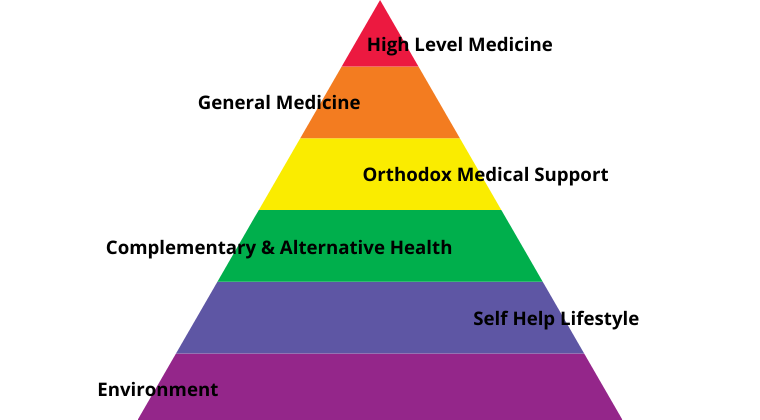A 21st Century Vision of Healthcare – A Paradigm Shift
Turning our healthcare systems upside down for a healthier society in the future
Let me make it crystal clear, I cherish the best of modern medicine and am grateful that I live at a time when millions are saved from a premature death with the advent of the wonders of modern medicine. My own father would not have died when I was only a baby if antibiotics been readily available at that time.
Despite my respect and admiration for the incredible advances medicine has made over the last century, I know that we have been travelling on the wrong road, if we hope and aspire to a healthier society tomorrow.
It is time we should all take a moment to discuss and debate what exactly we all mean by “health”. In particular our leaders in healthcare, the government planners who allocate resources, the specialists at the cutting edge of medical research, our doctors who are regarded as the primary experts on all matters of health and, most importantly, you and I, the general public who are the ultimate driving force for the future of medicine and healthcare!
I have spent over forty years as a health practitioner trying to satisfy myself on this apparent simple question “what is health and how does it arise?” I am convinced it is not a difficult question to answer, and health is not only based on a few simple basic factors but should be the norm for the vast majority of us!
I also believe it is no coincidence that mankind is challenged right now with an even bigger question “how to save the health of our planet so that future generations of our children will be able to survive here.” These two questions have almost the same answers, as you can see from my brief article on this matter – “Yes You Can Save The Planet! You Can Fix Your Own Health & The Planet’s Health”
At the end of the last Millennium, in 1999 the UK government published a radical document entitled “Our Healthier Nation” that envisaged the problems we now have. HERE briefly it highlighted that too many people are ill for much of their lives and that too many people are dying too young from illnesses which are preventable. It highlighted the need for individuals to take more care of their own health, and for a health service that was much more integrated at all levels. It highlighted the key killers: cancer, coronary heart disease, strokes, and other chronic diseases that we now know are largely preventable with lifestyle changes, and improvements in social, economic and environmental factors.
Sadly over the past 21 years these early warnings have been almost ignored. There have been major changes but these changes have emphasised medical treatment of chronic diseases, greater reliance on treating established diseases and less concern for preventing them. Most investment has driven this process as chronic diseases and pathology offer an almost limitless commercial market for new drugs, medical interventions, medical insurance, and today the acceptance that mankind’s survival will need global “jabs” on a regular basis.
Health education and promotion does not have the same commercial driving force. As a health practitioner I judge the success of my work by the increasing independence of my patients who need to see me less and less as they learn to change their lifestyle and become more responsible for their own health and wellbeing.
No Government can make us healthier, and most doctors would confirm that even they cannot make their patients healthier. The best they can do is relieve suffering, repair damaged structures, and extend a life of ill health. Only you and I have the response-ability to choose what we eat for good health, how we exercise, how to deal with the stresses of life, and what kind of work and lifestyle we want to have. Yes, governments can improve the environment we work and live in. They can direct the education of us all towards healthier living, from school children to doctors who need to be educated in health promotion as well as in disease therapy.
As the 1999 White Paper pointed out, we need a partnership that works towards a healthier society. This is not achieved solely by more and more medical intervention. The USA has the highest per capita spend on medical care but is near the bottom of the healthiest developed countries! We in the UK are following their example, but we do have the advantage to see where it may lead us and now make the changes that we all need.
For a fuller review of the many connections that lead to wellbeing and good health I published a small book a decade ago called “CONNECTION – Towards a Broader Understanding of Health in Medicine.“
Let us hope that 2022 will be the start of a new era in healthcare and that we can all work together for a healthier society and planet. We all have Response-Ability, let’s use it!
Michael Lingard BSc.(Econ). Dip.Osteopathy.
Health Practitioner, Buteyko Educator, Nutritionist.








